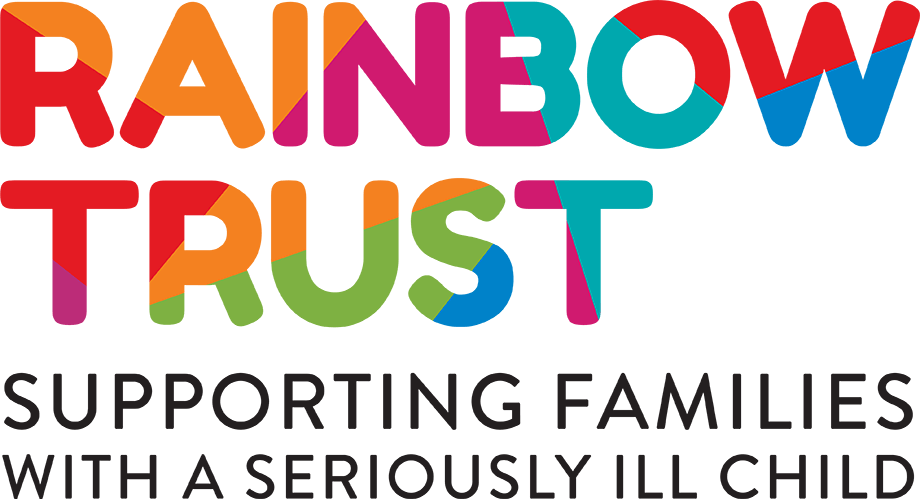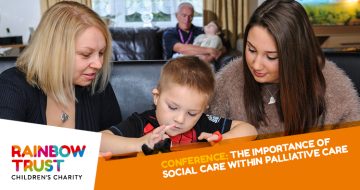Date published: 16 September 2016 by Anna Jackson
Thousands of families have a life threatened or terminally ill child. Many families will need more support than their own resources and networks can provide. This is where social care becomes essential within palliative care.
Providing this support has led Rainbow Trust to coin a new phrase: social palliative care. By this we mean the essential support that a family needs, alongside medical care, to face each day as it comes.
What does this mean in practice? Our model of care strives to be responsive to families and is underpinned by some central theories and principles:
Person Centred: Providing support that enables the person to feel accepted, positively regarded and able to sense empathy and understanding from the person supporting them.
Empowerment: Providing support that enables a person to manage their emotions, skills, knowledge and or material resources in a way that will assist them to achieve their desired outcomes and life choices.
Advocacy: Providing support that enables a person to own control and involvement in their desired outcomes and life choices. Family members may be assisted to think through what they want to say or have happen, to say what it is they want or to hear what is being said to them in stressful situations.
Family systems: Providing support that acknowledges that individuals within families have needs and also the family unit has needs.
Ecological: Providing support that acknowledges that each family and individual family member exists within a natural community. The community can be made up in different ways and will be unique to each family.
Attachment: Providing support that acknowledges the quality of a person’s ability to form and sustain healthy relationships with others and their ability to be supported and maintain a sense of positive self perception. This may have an impact on the nature of their grief responses.
For professionals there are many challenges in putting these theories into practice, as they work with families during a highly vulnerable period. How can professionals work in a culturally sensitive way? What sort of support is needed for brothers and sisters of a terminally ill child? In what ways might parents support other parents going through the same difficult circumstances? And how can professionals begin conversations with families about bereavement?
It is precisely these complex issues that we invite professionals working in health and social care in a variety of setting to join us to share experiences and discuss at ‘Working ourselves into the shadows’, the Rainbow Trust Care Conference on 11 October. Join the debate at our Care Conference.



